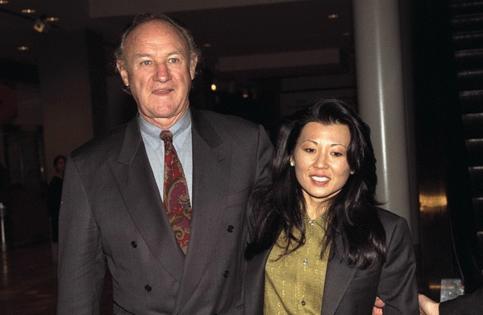Commentary: As the deaths of Gene Hackman and his wife demonstrate, we need to care for our caregivers
Published in Op Eds
When we heard the news of the deaths of Gene Hackman and his wife, Betsy Arakawa, we initially worried that it was a murder-suicide. Perhaps he, like Robin Williams, had decided that he was not suited for a prolonged decline, from dementia in his case, and his wife made the ultimate sacrifice to support his decision. As the facts have come out, however, the reality of their situation is bleaker than we imagined.
Hackman had Alzheimer’s disease, and Arakawa was his caregiver, looking after his daily needs and protecting his social image. When Arakawa became ill, she likely cared for Hackman to the end of her life, and then he endured another week alone in his home. This bond is a reality for the millions of caregivers who care for the 6.9 million Americans age 65 and older with Alzheimer’s disease. Their numbers are projected to double to 13.8 million by 2060.
Why do caregivers sometimes trade their own well-being for that of the person with dementia? In a key way, the American health system encourages it. Each person has private relationships with their medical providers because the U.S. defines a “ patient” as an individual. But dementia creates symptoms and problems that are shared between two people. So, when a caregiver needs treatment, it requires more doctor’s visits for that person while finding care coverage for the person with dementia.
In contrast, caregivers are expected to attend medical appointments with the person with dementia. During visits, caregivers serve as experts on the daily challenges of the people they serve. They are often the loudest advocates for the person’s unmet needs. But providers almost never ask questions about the caregiver’s well-being.
This lack of assessment is sometimes attributed to time limitations and the fact that caring for the caregiver falls outside the provider’s responsibilities. Some specialists, such as geriatricians, routinely assess how caregiving affects the person’s mood and whether they can physically support the person with dementia. But, even for specialists, the current system precludes them from ordering tests or prescribing therapies for caregivers. As researchers and clinicians who have supported and studied caregivers, we see all the time why this treatment gap needs to be fixed.
For Arakawa, we do not know whether assessment and treatment during one of Hackman’s routine medical visits would have helped reverse her case of hantavirus, the rodent-borne respiratory disease that killed her. In an alternative system, a physician may have assessed Arakawa to find that she was fatigued and had other flu-like symptoms. They could have discussed a plan to help her recover and obtain support to care for Hackman.
In general, caregivers have health issues that are common in primary care, including anxiety and depression, which are usually treatable in most clinical settings. Moreover, care models outside of medicine show the feasibility of treating multiple people at the same visit. For example, marriage and family therapists diagnose and treat disorders within the context of couples and family systems.
As we see it, two crucial changes to the medical system could improve the care for both the caregiver and person with dementia. First, there needs to be better assessment in medical visits of both parties. Ideally, this work would be done routinely with a standardized measure to capture the pair’s well-being.
Second, providers must be able to order tests and prescribe therapies if a caregiver needs them. One policy change might be amending the Medicaid waiver program, which allows states to tailor care and already supports access to family counseling for caregivers. We expect that improving outcomes for caregivers will improve the well-being of the person with dementia, often by using the same strategies already in place.
Without these two crucial changes, the terrifying scenario endured by Hackman and Arakawa will continue to be repeated.
____
Shana D. Stites and Rebecca T. Brown are senior fellows at the Leonard Davis Institute of Health Economics at the University of Pennsylvania. Stites is also a clinical psychologist and assistant professor at Penn’s Perelman School of Medicine. Brown is a geriatrician and an associate professor of medicine in the Division of Geriatric Medicine at the school.
___
©2025 Chicago Tribune. Visit at chicagotribune.com. Distributed by Tribune Content Agency, LLC.




























































Comments